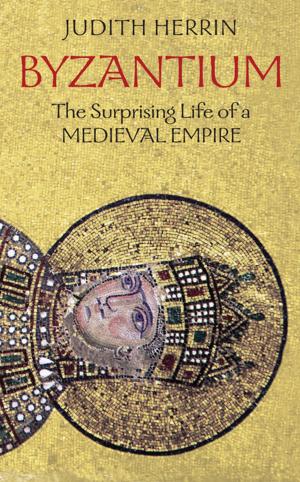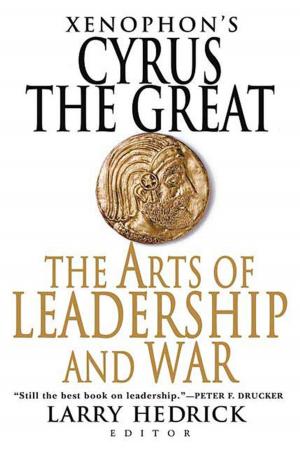| Author: | J.A. McClymont, John Fulleylove | ISBN: | 1230000294051 |
| Publisher: | A. & C. BLACK | Publication: | January 30, 2015 |
| Imprint: | Language: | English |
| Author: | J.A. McClymont, John Fulleylove |
| ISBN: | 1230000294051 |
| Publisher: | A. & C. BLACK |
| Publication: | January 30, 2015 |
| Imprint: | |
| Language: | English |
Example in this ebook
More perhaps than any other country in Europe, Greece owes its charm to the traditions of a remote past. It has no lack of fine scenery, and there is much that is interesting in its modern life; but what chiefly distinguishes it from other countries is the rich and beautiful mythology which is reflected in its poetry, its art, and its philosophy, and was to a large extent the inspiration of its glorious history.
It will not be expected that any attempt should be made in these pages to give an adequate account of the artistic and architectural creations which, even in their ruins, form the chief attraction of the country. For detailed information on these matters, the reader must be left to consult such guide-books as Baedeker and Murray, or works specially devoted to archæology or art. The object of the present writer will be attained if he succeed in providing a congenial intellectual atmosphere for the scenes and objects to be presented by the artist. For this purpose it will be necessary, among other things, to recall many of the ancient legends, as well as the historical events associated with the places referred to. The history cannot be understood apart from the mythology, for the latter is a key to the religious faith as well as to the patriotic sentiment of the nation.
Opinions may differ as to the right interpretation of many of the myths, but whatever explanation we may be disposed to give of them, whether we regard them as allegorical, semi-historical, or purely poetical, they are generally full of human interest, and they were very dear to the Greeks as the embodiment of their earliest thoughts and cherished memories. Embalmed in their poetry, consecrated by their temples, and signalised by many other monuments, the Greek mythology formed for centuries the chief intellectual wealth of the nation. Even when history and philosophy had begun to make their influence felt, the old stories, dramatised by the tragic poets, still continued to fill the imagination and to occupy the attention of all classes of the people. Though Plato had a good deal to say against some of them from an ethical point of view, he did not propose in his ideal Republic to do away with them altogether, he only wished them to be so corrected and purified as to promote the interests of a sound morality and a reasonable theology.
An important feature of Greek mythology was its close connection with the received genealogies. These nearly always terminated, at the upper end, in a god or a hero, after whom a family or a group of families was named, with the curious result, to our modern
mind, that the shorter the pedigree the more honour it conferred upon its living representative. The public genealogies were thus an incentive both to the piety and the pride of the more influential classes, and they help to account for the reverence in which the ancient mythology was so long held by such an enlightened nation as the Greeks.
With the exception of Palestine, there is probably no country that can compare with Greece for the influence it has exerted on the life and thought of the world, in proportion to its size and population. In area it was never so large as Scotland, and its population, which is now under two millions and a half, was probably never much greater.
To be continue in this ebook
Example in this ebook
More perhaps than any other country in Europe, Greece owes its charm to the traditions of a remote past. It has no lack of fine scenery, and there is much that is interesting in its modern life; but what chiefly distinguishes it from other countries is the rich and beautiful mythology which is reflected in its poetry, its art, and its philosophy, and was to a large extent the inspiration of its glorious history.
It will not be expected that any attempt should be made in these pages to give an adequate account of the artistic and architectural creations which, even in their ruins, form the chief attraction of the country. For detailed information on these matters, the reader must be left to consult such guide-books as Baedeker and Murray, or works specially devoted to archæology or art. The object of the present writer will be attained if he succeed in providing a congenial intellectual atmosphere for the scenes and objects to be presented by the artist. For this purpose it will be necessary, among other things, to recall many of the ancient legends, as well as the historical events associated with the places referred to. The history cannot be understood apart from the mythology, for the latter is a key to the religious faith as well as to the patriotic sentiment of the nation.
Opinions may differ as to the right interpretation of many of the myths, but whatever explanation we may be disposed to give of them, whether we regard them as allegorical, semi-historical, or purely poetical, they are generally full of human interest, and they were very dear to the Greeks as the embodiment of their earliest thoughts and cherished memories. Embalmed in their poetry, consecrated by their temples, and signalised by many other monuments, the Greek mythology formed for centuries the chief intellectual wealth of the nation. Even when history and philosophy had begun to make their influence felt, the old stories, dramatised by the tragic poets, still continued to fill the imagination and to occupy the attention of all classes of the people. Though Plato had a good deal to say against some of them from an ethical point of view, he did not propose in his ideal Republic to do away with them altogether, he only wished them to be so corrected and purified as to promote the interests of a sound morality and a reasonable theology.
An important feature of Greek mythology was its close connection with the received genealogies. These nearly always terminated, at the upper end, in a god or a hero, after whom a family or a group of families was named, with the curious result, to our modern
mind, that the shorter the pedigree the more honour it conferred upon its living representative. The public genealogies were thus an incentive both to the piety and the pride of the more influential classes, and they help to account for the reverence in which the ancient mythology was so long held by such an enlightened nation as the Greeks.
With the exception of Palestine, there is probably no country that can compare with Greece for the influence it has exerted on the life and thought of the world, in proportion to its size and population. In area it was never so large as Scotland, and its population, which is now under two millions and a half, was probably never much greater.
To be continue in this ebook















